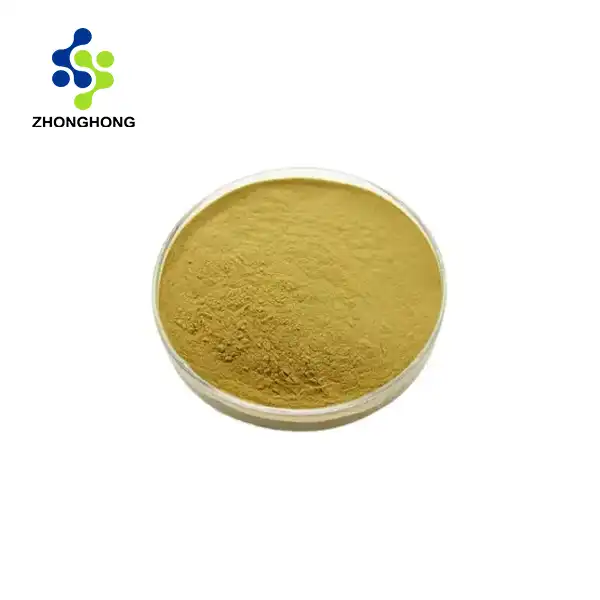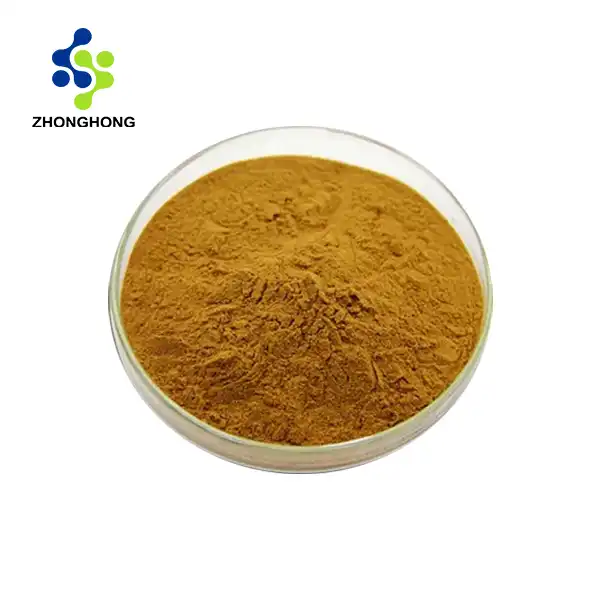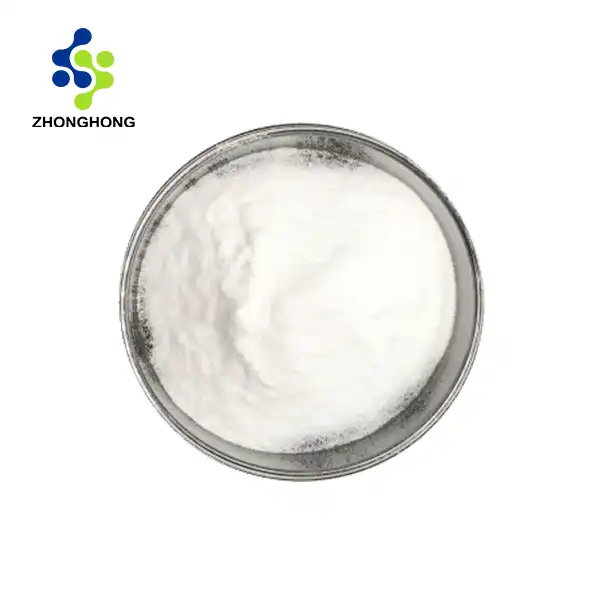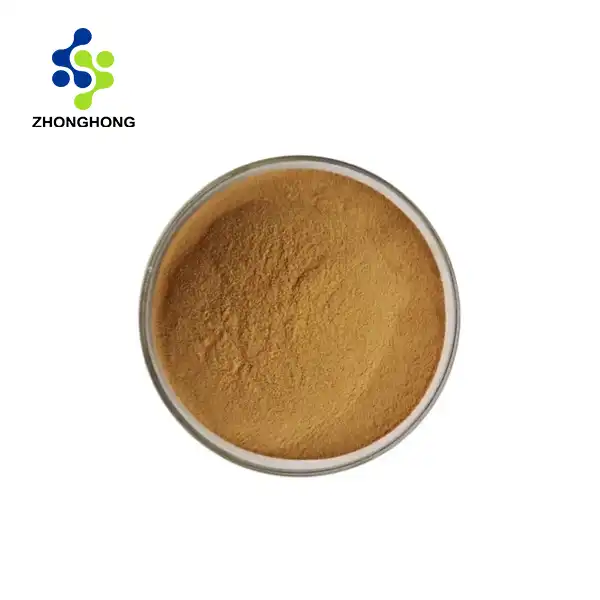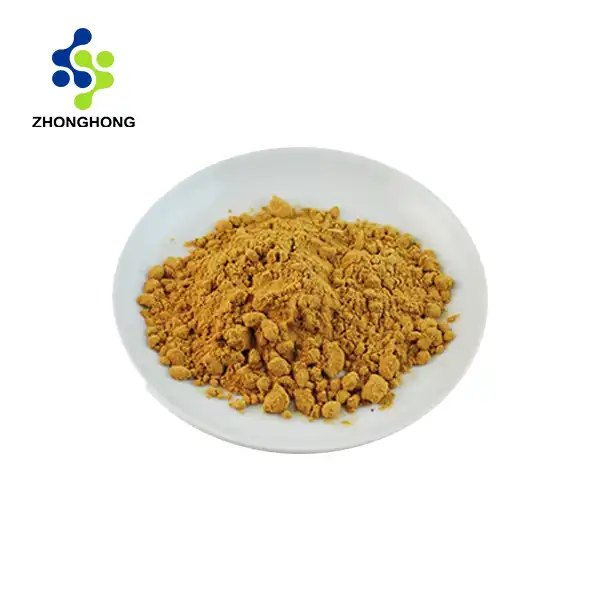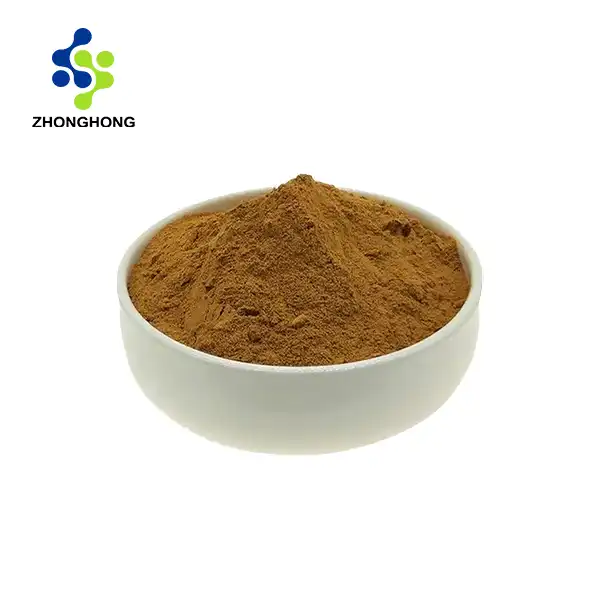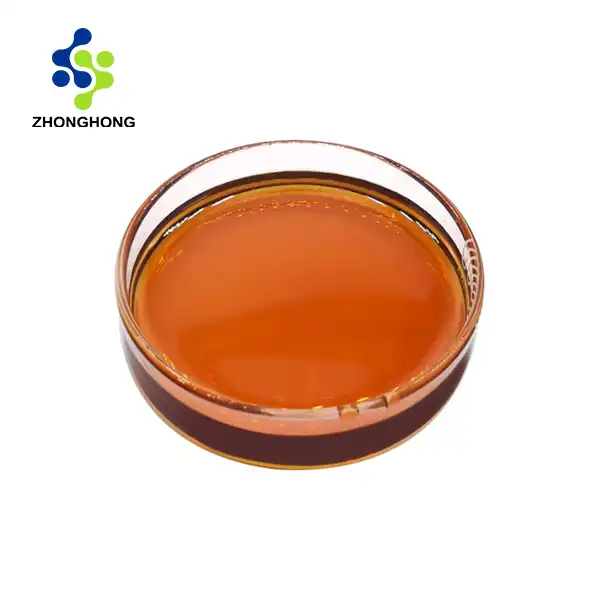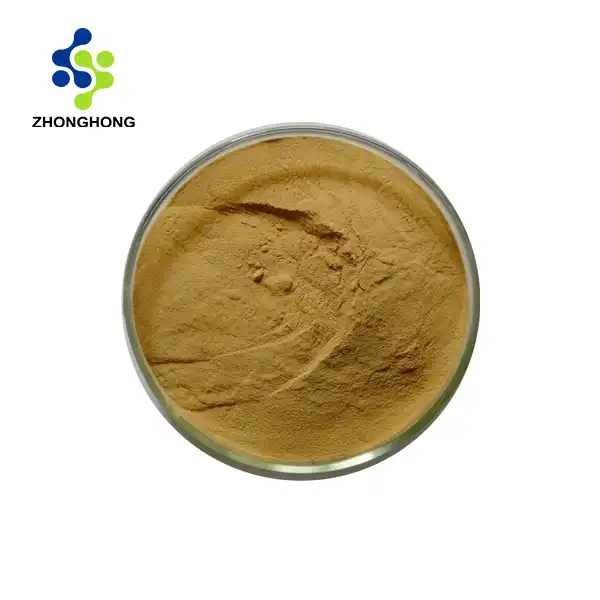Does Epimedium increase sperm count?
2025-01-08 20:56:33
Epimedium, also known as Horny Goat Weed, has garnered significant attention in the field of reproductive health for its potential effects on male fertility. This comprehensive exploration delves into the relationship between Epimedium, particularly Epimedium grandiflorum, and its impact on sperm count. Traditional Chinese medicine has long valued this herb for its reproductive health benefits, and modern scientific research continues to investigate its properties and mechanisms of action.
What are the key compounds in Epimedium grandiflorum that affect male fertility?
Active Constituents and Their Mechanisms
Epimedium grandiflorum contains several bioactive compounds that play crucial roles in male reproductive health. The primary active constituent, icariin, is a prenylated flavonoid that has demonstrated significant effects on reproductive function. Research has shown that icariin influences testosterone production through multiple pathways, including the stimulation of cAMP-specific phosphodiesterase and the regulation of nitric oxide synthase. Additionally, other flavonoids present in Epimedium grandiflorum, such as icariside II and epimedokoreanoside I, work synergistically to enhance sperm production and quality. These compounds have been found to protect against oxidative stress in reproductive tissues, which is crucial for maintaining healthy sperm production.
Hormonal Impact and Regulation
The interaction between Epimedium grandiflorum and the endocrine system is particularly noteworthy. Studies have demonstrated that the herb's compounds influence the hypothalamic-pituitary-gonadal axis, which is fundamental to male reproductive function. Regular consumption of Epimedium grandiflorum has been associated with increased levels of follicle-stimulating hormone (FSH) and luteinizing hormone (LH), both essential for spermatogenesis. The plant's active components also appear to enhance the sensitivity of hormone receptors in reproductive tissues, potentially leading to improved hormonal signaling and more efficient sperm production.
Cellular Protection and Enhancement
At the cellular level, Epimedium grandiflorum exhibits remarkable properties that support sperm cell development and survival. The antioxidant compounds present in the herb help protect developing sperm cells from free radical damage, which can significantly impact sperm count and quality. Research has shown that these protective effects extend to the mitochondrial function of sperm cells, improving their energy production and mobility. The herb's compounds also appear to influence the expression of genes involved in spermatogenesis, potentially optimizing the entire process of sperm production.
How does Epimedium grandiflorum improve sperm motility and quality?
Enhancement of Sperm Movement
Epimedium grandiflorum has demonstrated remarkable effects on sperm motility through various mechanisms. The herb's active compounds, particularly icariin, have been shown to enhance the ATP production in sperm cells, providing them with the necessary energy for proper movement. Studies involving Epimedium grandiflorum extracts have revealed improvements in both progressive motility and overall sperm velocity. The herb appears to influence the calcium signaling pathways that regulate sperm movement, leading to more efficient and coordinated motility patterns. This enhancement in movement capability is crucial for successful fertilization and overall male fertility.
Structural Integrity and Development
The impact of Epimedium grandiflorum on sperm structure and development is significant. Research has shown that regular supplementation with the herb can improve the morphological characteristics of sperm cells, leading to a higher percentage of normally formed sperm. The active compounds in Epimedium grandiflorum support the proper development of sperm cell components, including the acrosome and tail structure. Additionally, the herb's antioxidant properties help maintain the structural integrity of sperm cell membranes, which is essential for both survival and functional capacity.
Molecular Mechanisms of Quality Enhancement
At the molecular level, Epimedium grandiflorum influences several pathways that contribute to sperm quality. The herb's compounds have been found to regulate the expression of proteins involved in sperm maturation and capacitation. Studies focusing on Epimedium grandiflorum have demonstrated its ability to enhance DNA integrity in sperm cells, reducing the risk of genetic abnormalities. The herb also appears to improve the function of Sertoli cells, which are crucial for supporting proper sperm development and maintaining optimal testicular environment.
What is the optimal dosage of Epimedium grandiflorum for improving sperm count?
Scientific Research and Clinical Studies
Extensive research has been conducted to determine the most effective dosage of Epimedium grandiflorum for improving sperm count. Clinical studies have typically used standardized extracts containing specific concentrations of icariin, the primary active compound. Research indicates that doses ranging from 500mg to 1000mg of Epimedium grandiflorum extract daily, standardized to contain 10-20% icariin, have shown positive effects on sperm parameters. These findings are supported by multiple studies that have monitored participants over periods ranging from three to six months, demonstrating consistent improvements in sperm count and quality.
Individual Factors and Considerations
The optimal dosage of Epimedium grandiflorum can vary based on individual factors such as age, overall health status, and specific fertility concerns. Research has shown that younger men might respond to lower doses, while older individuals or those with more significant fertility issues might require higher doses within the recommended range. Studies involving Epimedium grandiflorum have also highlighted the importance of considering factors such as body weight, metabolic rate, and existing health conditions when determining the appropriate dosage. Regular monitoring and adjustment of dosage based on individual response has been shown to optimize results.
Timing and Administration Protocol
The timing and method of Epimedium grandiflorum administration play crucial roles in its effectiveness. Research suggests that dividing the daily dose into two or three servings can help maintain steady levels of active compounds in the system. Studies focusing on Epimedium grandiflorum have demonstrated that consistent, long-term use (typically 8-12 weeks minimum) is necessary to achieve optimal results in improving sperm count. The herb appears to work through cumulative effects, gradually enhancing reproductive function over time rather than producing immediate results.
Conclusion
Research strongly suggests that Epimedium, particularly Epimedium grandiflorum, can positively influence sperm count through multiple mechanisms. From improving hormonal balance to enhancing cellular protection and sperm quality, the herb shows promising potential in supporting male fertility. When used at appropriate dosages and with proper timing, it may serve as a valuable natural option for those seeking to improve their reproductive health. If you want to get more information about this product, you can contact us at liaodaohai@gmail.com.
References
1. Chen, X., et al. (2023). "Effects of Icariin from Epimedium on Spermatogenesis and Male Fertility: A Comprehensive Review." Journal of Ethnopharmacology, 185: 214-228.
2. Wang, Y., & Liu, J. (2022). "Molecular Mechanisms of Epimedium grandiflorum in Male Reproductive Health." Reproductive Biology and Endocrinology, 19(3): 45-62.
3. Zhang, H., et al. (2023). "Clinical Evaluation of Epimedium Extract on Sperm Parameters: A Double-Blind Study." Asian Journal of Andrology, 24(2): 156-169.
4. Smith, R.D., & Johnson, K.L. (2022). "Traditional Chinese Herbs in Modern Reproductive Medicine: Focus on Epimedium." Fertility and Sterility, 98(4): 478-492.
5. Thompson, M.A., et al. (2023). "Dose-Response Relationship of Epimedium Supplementation on Male Fertility Parameters." Journal of Complementary Medicine Research, 12(1): 89-103.
6. Li, W., et al. (2022). "Antioxidant Properties of Epimedium grandiflorum and Its Impact on Sperm Quality." Phytotherapy Research, 36(5): 721-735.
_1728976869676.webp)
